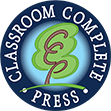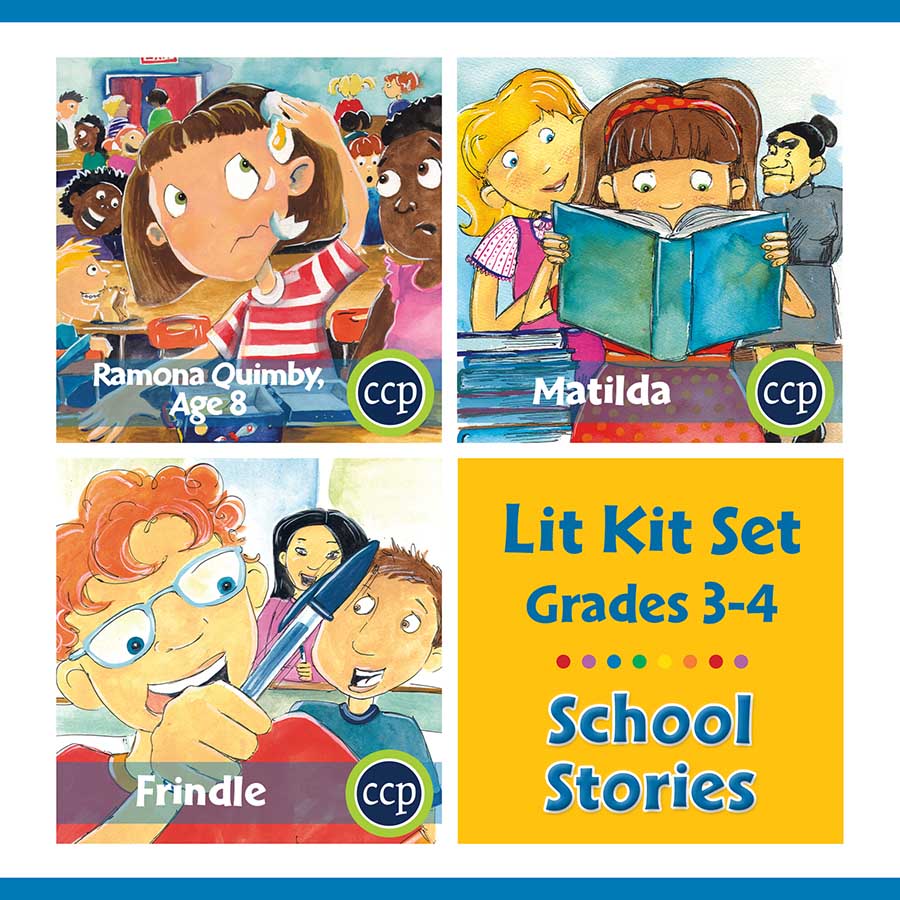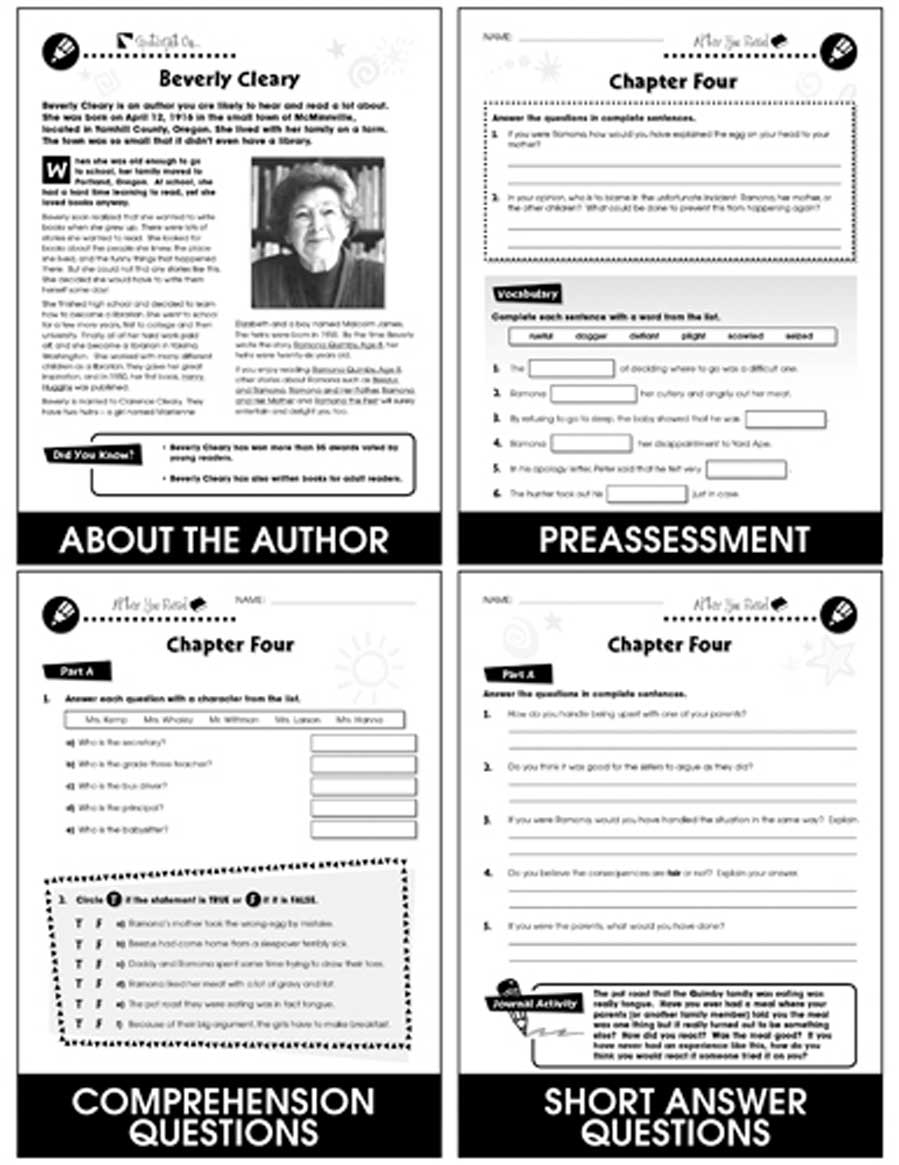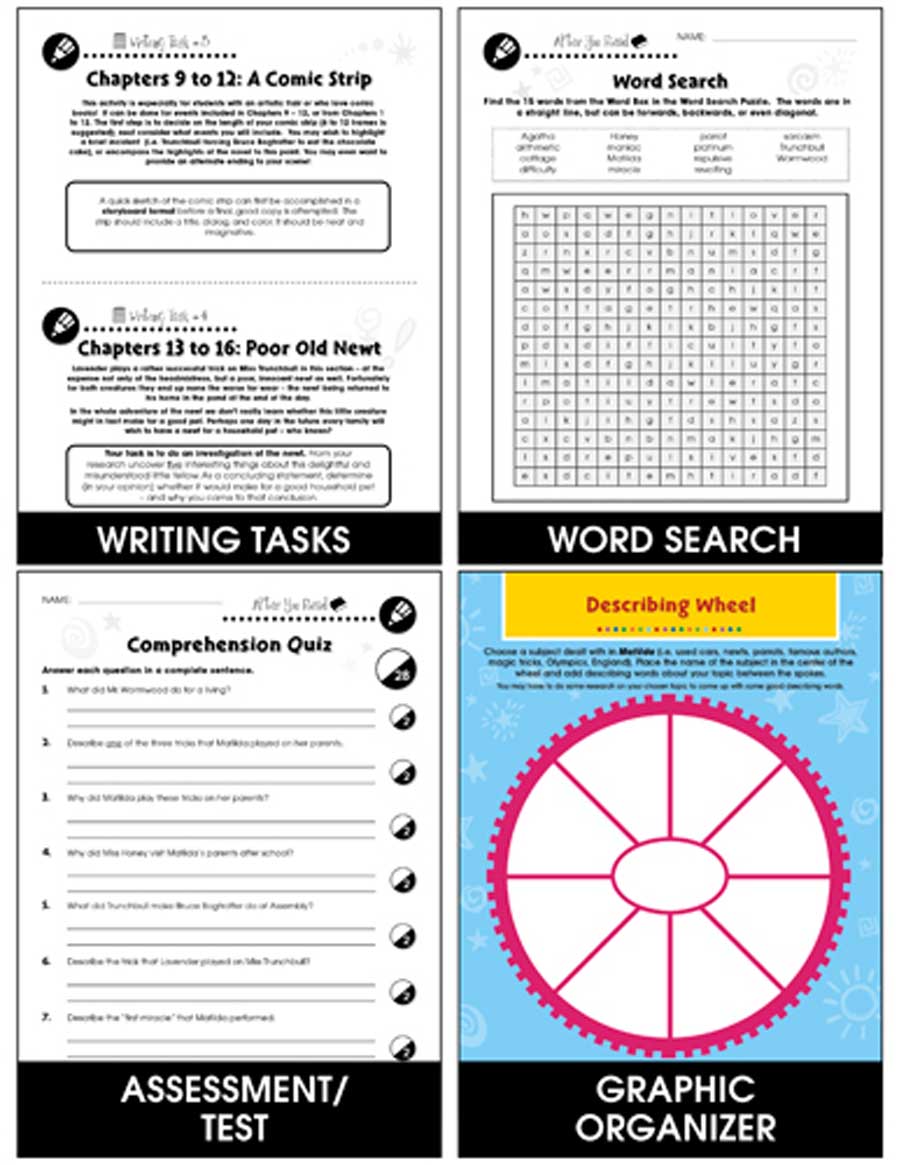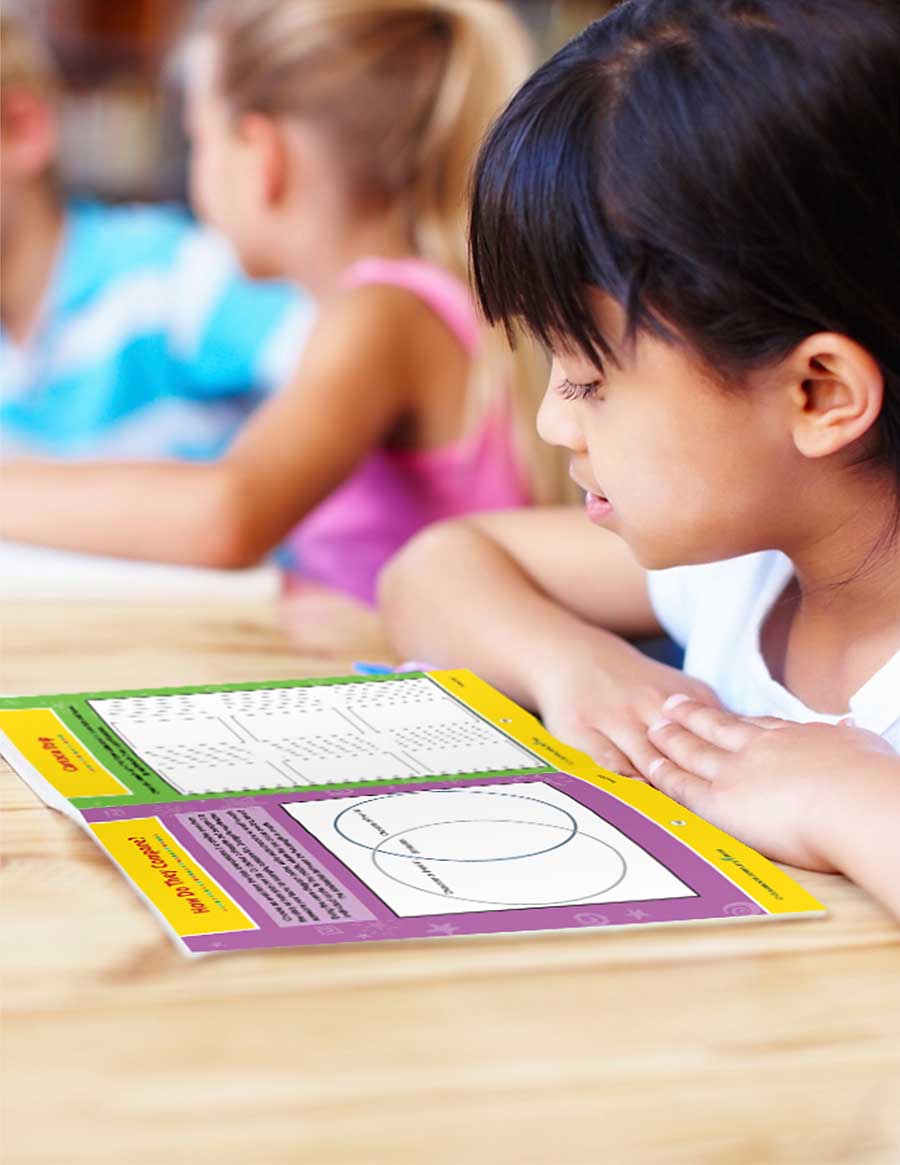Novel Study Guides >
Grades 3, 4 >
School Stories Lit Kit Set - Gr. 3-4
School Stories Lit Kit Set - Gr. 3-4
Grades 3 to 4 - Print Book - Lesson Plan
Order #: CC2914
ISBN13: 978-1-77167-642-7
Grades: 3, 4
Reading Level: 3-4
Total Page: 165
Author: Marie-Helen Goyetche, Nat Reed and Staci Marck
Tweet
Description
In this State Standards-aligned Literature Kit Set, we combine 3 of our school stories novel study guides for grades 3-4. Each guide divides the novel by chapters or sections and feature reading comprehension and vocabulary questions. In every chapter, we include Before You Read and After You Read questions. The Before You Read activities prepare students for reading by setting a purpose for reading. They stimulate background knowledge and experience, and guide students to make connections between what they know and what they will learn. The After You Read activities check students' comprehension and extend their learning. Students are asked to give thoughtful consideration of the text through creative and evaluative short-answer questions and journal prompts. Also included are writing tasks, graphic organizers, comprehension quiz, test prep, word search, and crossword to further develop students' critical thinking and writing skills, and analysis of the text. All of our content is aligned to your State Standards and are written to Bloom's Taxonomy.
About CC2304 - Ramona Quimby, Age 8:
Ramona is a typical eight-year-old, but growing up is not easy! For instance, a new fad begins at school where the children whack hard-boiled eggs on their heads before they eat them. Unluckily for Ramona, she accidentally ends up wearing raw egg on her head - this is not her favorite day! She also must deal with the challenges of being with a four-year-old after school, her older sister's moods, her father quitting his job and studying full time, the family car breaking down, and her family's financial troubles. By the end of this entertaining story, Ramona has come to terms with a few things and is just a little bit more mature. All of our content is aligned to your State Standards and are written to Bloom's Taxonomy.
About CC2309 - Matilda:
Matilda is the charming story of a very unusual little girl, Matilda, who despite having two very horrible parents, learns how to read by the age of three. There are many other things about Matilda that are very special. She can solve arithmetic problems very quickly in her head, and she can move things about with the power of thought. Despite all of this she is a most pleasant little girl who is well liked by her classmates and by her wonderful teacher, Miss Honey. Matilda discovers the headmistress of the school, Miss Trunchbull, is actually Miss Honey's aunt and has cheated her out of her inheritance. Matilda sets her mind to work, and in the end Miss Honey recovers her stolen inheritance and adopts Matilda. All of our content is aligned to your State Standards and are written to Bloom's Taxonomy.
About CC2311 - Frindle:
Frindle is the story of a clever, time-wasting schemer's innovative plan to create his own word for the dictionary. Ten-year-old Nick Allen has a reputation for developing ingenious plans that distract teachers. For the first time ever, his diversions fail to create the desired results in Mrs. Granger's fifth grade language arts class. Instead of distracting her, he ends up with an extra assignment and oral presentation on how new entries are added to the dictionary. Surprisingly, the boring assignment leads to Nick's most clever idea ever when he decides to create his own new word - frindle. Nick recruits five fellow students to support his efforts in changing the name of pen to frindle. Their insistence on referring to pens as frindles causes a major commotion when Mrs. Granger's passion for vocabulary and strict emphasis on the correct use of language result in a battle of wills that threatens to disrupt the whole school. Their war of words spreads beyond the school resulting in after-school punishments, a home visit from the principal, national publicity, economic opportunities for local businessmen, and, eventually inclusion in the dictionary. All of our content is aligned to your State Standards and are written to Bloom's Taxonomy.
About CC2304 - Ramona Quimby, Age 8:
Ramona is a typical eight-year-old, but growing up is not easy! For instance, a new fad begins at school where the children whack hard-boiled eggs on their heads before they eat them. Unluckily for Ramona, she accidentally ends up wearing raw egg on her head - this is not her favorite day! She also must deal with the challenges of being with a four-year-old after school, her older sister's moods, her father quitting his job and studying full time, the family car breaking down, and her family's financial troubles. By the end of this entertaining story, Ramona has come to terms with a few things and is just a little bit more mature. All of our content is aligned to your State Standards and are written to Bloom's Taxonomy.
About CC2309 - Matilda:
Matilda is the charming story of a very unusual little girl, Matilda, who despite having two very horrible parents, learns how to read by the age of three. There are many other things about Matilda that are very special. She can solve arithmetic problems very quickly in her head, and she can move things about with the power of thought. Despite all of this she is a most pleasant little girl who is well liked by her classmates and by her wonderful teacher, Miss Honey. Matilda discovers the headmistress of the school, Miss Trunchbull, is actually Miss Honey's aunt and has cheated her out of her inheritance. Matilda sets her mind to work, and in the end Miss Honey recovers her stolen inheritance and adopts Matilda. All of our content is aligned to your State Standards and are written to Bloom's Taxonomy.
About CC2311 - Frindle:
Frindle is the story of a clever, time-wasting schemer's innovative plan to create his own word for the dictionary. Ten-year-old Nick Allen has a reputation for developing ingenious plans that distract teachers. For the first time ever, his diversions fail to create the desired results in Mrs. Granger's fifth grade language arts class. Instead of distracting her, he ends up with an extra assignment and oral presentation on how new entries are added to the dictionary. Surprisingly, the boring assignment leads to Nick's most clever idea ever when he decides to create his own new word - frindle. Nick recruits five fellow students to support his efforts in changing the name of pen to frindle. Their insistence on referring to pens as frindles causes a major commotion when Mrs. Granger's passion for vocabulary and strict emphasis on the correct use of language result in a battle of wills that threatens to disrupt the whole school. Their war of words spreads beyond the school resulting in after-school punishments, a home visit from the principal, national publicity, economic opportunities for local businessmen, and, eventually inclusion in the dictionary. All of our content is aligned to your State Standards and are written to Bloom's Taxonomy.
